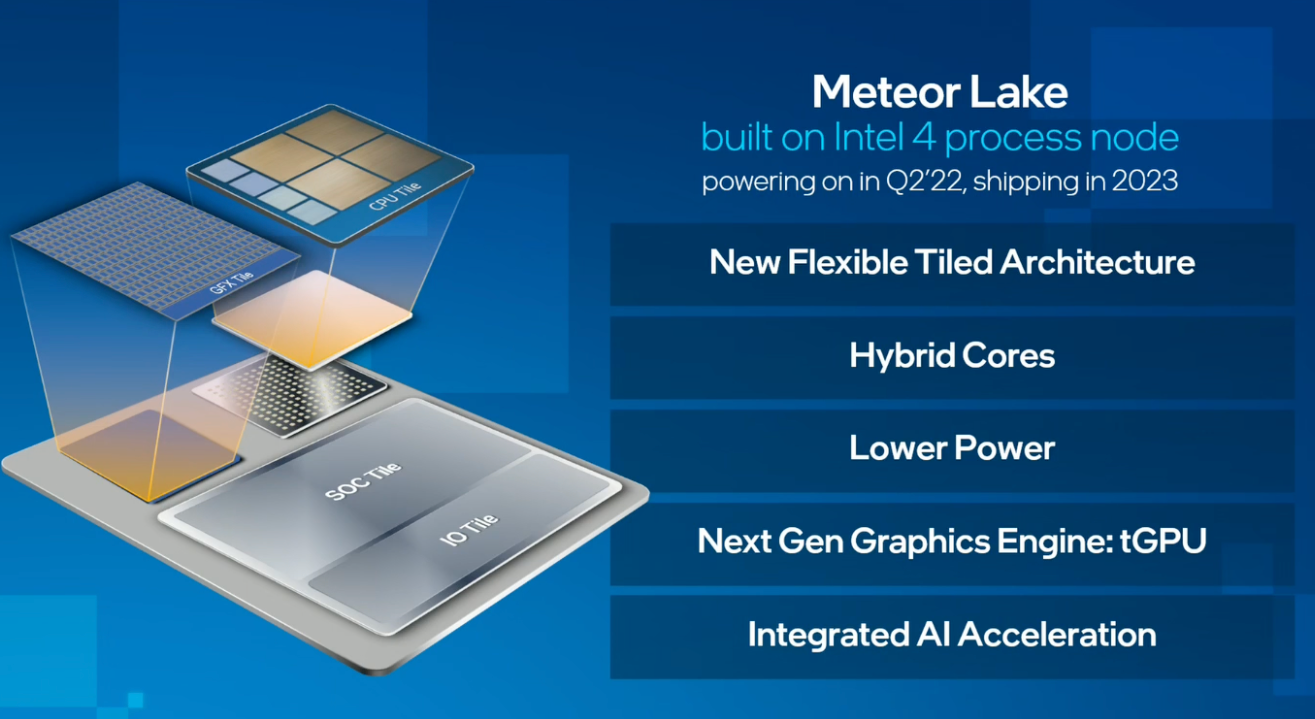Intel Meteor Lake Boot Log Spotlights 20 Core CPU Sample
The early work begins.
Intel’s Raptor Lake and AMD's Ryzen 7000 have been hogging the CPU benchmarks limelight for the last few weeks. This is only natural, as we think the official launch of these 13th-Gen Intel Core processors may be just weeks away. However, we have had a pleasing stream of Meteor Lake 14th-Gen Intel Core information and leaks over recent months. Today that continues thanks to Linux boot logs which appear to be from a PC that features one of these exciting upcoming processors.
Japan’s Coelacanth Dream has published his analysis of a trio of Linux boot logs, initially shared on Github by thesofproject. It is no surprise that, at this early stage, the purported Meteor Lake (MTL) chip that has been spotted is described as an ‘ES’ or Engineering Sample. As is typical with these samples, the chip has no name and is ‘recognized’ as a Genuine Intel (R) 0000.
The most obvious Meteor Lake flag in the boot log is where the platform Direct Media Interface (DMI) is described as an “Intel Corporation Meteor Lake Client Platform / MTL-P DDR5 SODIMM SBS RVP,” giving away the game. Incidentally, another piece of Meteor Lake processor evidence comes from the CPU ID string, which was previously reported as associated with the 14th-Gen Intel Core processors.
The tested sample CPU had a base clock of just 1.2 GHz. Other logged data suggests that the Meteor Lake chip tested didn’t offer support for AVX-512 instructions. Intel has taken a step back from offering AVX-512 for consumers with the current Alder Lake generation, and it looks like it could continue through Raptor Lake to Meteor Lake.
Some processor core information is revealed in the logs. The three logs with Meteor Lake details are probably all from the same machine, but interestingly the logs differ in CPU core count reporting. One suggests the CPU in the system has 16 cores; another counts 20 processor cores. Coelacanth Dream reckons the discrepancy is probably due to different values being returned for APIC ID and Package / Die ID queries. Another possibility is that the Meteor Lake CPU isn’t properly supported in the Linux Coreboot BIOS / UEFI at this time, so different Coreboot configurations surface different values in respective boot logs.
If you are interested in learning more about Intel Meteor Lake, please check out our recent breakdown of the SoC’s parts. At the link, you can learn more about the ‘Intel 4’ Redwood Cove Performance cores, the Crestmont Efficiency cores, the onboard TSMC N3 fabricated Xe-LPG architecture GPU, PCIe Gen5 support on both desktop and mobile, and its ultra-fast memory support.
Get Tom's Hardware's best news and in-depth reviews, straight to your inbox.

Mark Tyson is a news editor at Tom's Hardware. He enjoys covering the full breadth of PC tech; from business and semiconductor design to products approaching the edge of reason.
-
SiliconFly Raptor lake will be on par with Zen 4 with a minor performance advantage of 5% to 10%. But Meteor lake is the one thats going to leave AMD in the dust.Reply
AMD is going to get access to TSMC N3 only in 2024. Not 2023! Apple & Intel are going to hog all available N3 capacity next year. Instead, AMD will be sticking to TSMC N4 or N5 in 2023. Mostly N5P for their Zen 4 Refresh.
(Zen 5 may not come out in 2023, as its very expensive to do a brand new architecture on TSMC N5P in 2023 & yet again on TSMC N3 in 2024.)
This is the last year in which AMD will be on par (or at least nearly on par) with Intel. Starting next year, AMD is gonna get left behind.
